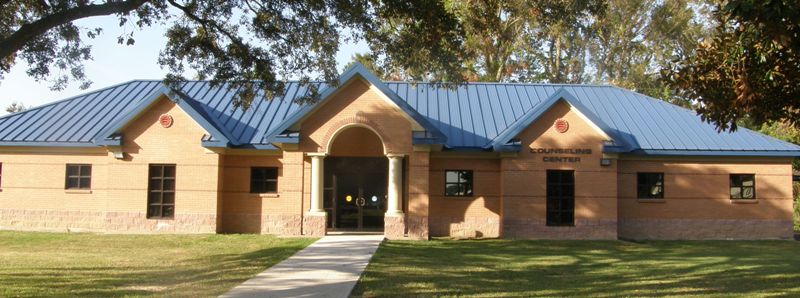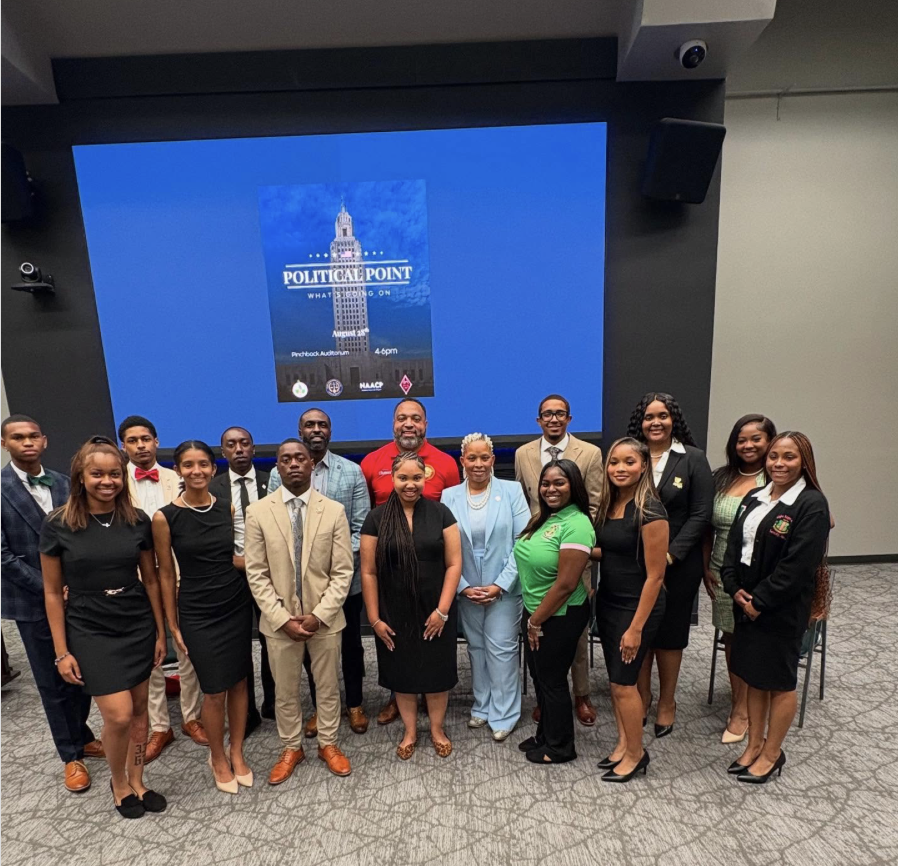Two Southern University students gave testimonials regarding CATS’ impact on Southern University Tuesday as Together Baton Rouge hosted a Metrowide Assembly for a new transit system at Mt. Pilgrim Baptist Church.
The duo, junior public relations majors Makala Clark and Willie McCorkle, joined other speakers from various entities within Baton Rouge as a parishwide vote looms April 21 on the future of the Capital Area Transit System.
Clark took a stance for the students at Southern University.
“On behalf of our student body, I stand before you expressing just how important having a reliable transit system is to us. Without CATS we are faced to travel across campus by foot in unpredictable weather,” Clark said.
McCorkle explained the contest initiated by students who volunteered their time to get other Southern students registered to vote in the Baton Rouge area.
“We went on to introduce an innovative idea of a contest. To get student organizations and Greeks involved by registering students to vote. With this we were able to obtain over 300 newly registered voters in addition to the 1,000 or so already registered voters,” McCorkle said.
Clark pledged Southern’s support behind the CATS transit vote.
“Southern University is 100 percent behind the efforts that together Baton Rouge is making with transit,” Clark said.
McCorkle discussed the reach of CATS on the Southern campus and its involvement in reform.
“At Southern University we’ve had great success with rallying students and getting them informed and involved in this critical issue. Over weeks and weeks of diligent and strategic planning with other student leaders on campus, we conducted and hosted a campus wide forum which explained in detail the crisis that the Capital Area Transit System is facing,” McCorkle said.
Clark said the reach of CATS goes beyond use during inclement weather.
“Not only that, but also many students use the bus system to get to local grocery stores and work. As we fight to increase enrollment and build the image and moral of Southern University we can’t afford to lose the only source of campus transportation that we have,” Clark said.
McCorkle explained the contest initiated by students who volunteered their time to get other Southern students registered to vote in the Baton Rouge area.
“We went on to introduce an innovative idea of a contest. To get student organizations and Greeks involved by registering students to vote. With this we were able to obtain over 300 newly registered voters in addition to the 1000 or so already registered voters,” McCorkle said.
Officials shared in an exchange addressing commitment to the community throughout the reform process ahead.
Edgar Cage from St. Michael’s Episcopal Church questioned Brian Marshall, CEO, Capital Area Transit System’s plans to commit in full to transit reform and meeting with the community quarterly.
Marshall answered yes, committing to execute in full.
”We plan to get newer busses, bus shelters, better bus signage, and the biggest thing that you will see is new routes,” Marshall said.
Marshall said that the CATS routes would be updated eliminating ‘old’ and ‘inefficient’ ones.
“The biggest thing people can expect from CATS is new routes. The way that the routes are set up is from a very old and inefficient routes system. The new routes will be much more efficient and there will be a lot more express lines everywhere,” Marshall said.
Broderick Bagert, the lead organizer for Together Baton Rouge explained his organization’s purpose, ”Together Baton Rouge is an organization of organizations. Our members are religious congregations, civic organizations, unions, universities, to bring together those institutions across racial lines, across geography, across politics, across economic backgrounds; to develop relationships, trust, and take action around issues affecting our families and communities.”
Bagert discussed the steps ahead to a successful transit reform process.
“The next month is getting out the vote and winning this election, but we are also working around education, fixing up cemeteries, crime, health care, and trying to get a grocery store into Scotlandville. Scotlandville is the largest food desert in Baton Rouge,” said Bagert.
Dianne Hanley from St. George Catholic Church communicated community expectations of the reform.
“We want to maintain a close working relationship to make sure that every aspect of this reform plan becomes a reality,” Hanley said.
The event was hosted by Together Baton Rouge.
Together Baton Rouge is part of the Industrial Areas Foundation (IAF), the nation’s oldest and largest broad-based organizing network. There are more than 65 IAF organizations around the country, including projects in New Orleans, Monroe, Shreveport-Bossier, Alexandria and the Louisiana Delta.
Categories:
Students cite reasons as CATS vote looms
May 7, 2012
0
More to Discover





